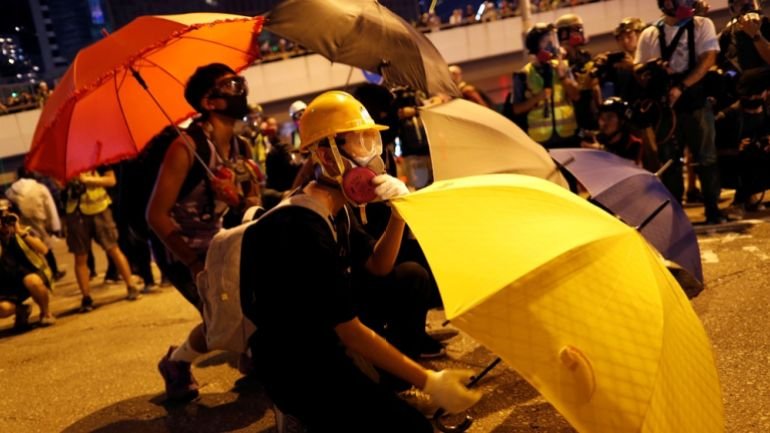UK Leaders Urge China to Halt Targeting of Opposition Figures in Britain
The UK government has rebuked Hong Kong officials for offering financial incentives aimed at apprehending pro-democracy activists residing in Britain, amidst discussions about potentially reviving an extradition agreement with the semi-autonomous city.
In a joint statement released on Friday, Foreign Secretary David Lammy and Home Secretary Yvette Cooper responded to Hong Kong’s announcement of monetary rewards for information that could lead to the detention of 19 activists abroad, including those in the UK, for alleged infractions of the stringent national security law implemented by Beijing in 2020.
In their communication, Lammy and Cooper condemned China’s actions as targeting dissenters within the UK. “The issuance of additional arrest warrants and bounties by the Hong Kong Police Force represents yet another instance of transnational repression,” they stated.
These bounties, ranging from 200,000 to one million Hong Kong dollars (approximately $25,000 to $125,000), reflect the gravity with which Hong Kong authorities pursue these individuals.
This marks the fourth time Hong Kong has offered such rewards, eliciting significant backlash from Western nations, which China has repeatedly dismissed as “interference” in its domestic affairs.
The UK ministers affirmed, “This Government remains steadfast in its support for the people of Hong Kong, including those who have sought refuge in the UK. We take their rights, freedoms, and safety very seriously.”
However, recent proposals by the UK government to amend extradition laws have raised alarms, with many expressing concerns that it could facilitate the resumption of extraditions to Hong Kong—suspended since the implementation of the national security law in 2020.
According to reports from Al Jazeera on July 17, the UK Home Office submitted a request to Parliament to modify extradition legislation, followed by a communication to Shadow Home Secretary Chris Philp the following day.
Security Minister Dan Jarvis stated in his letter dated July 18, “It is crucial for our national interests to maintain effective extradition agreements to prevent criminals from avoiding justice and to ensure the UK does not become a haven for criminals.”
The Home Office is also planning to reestablish an extradition framework with Chile and Zimbabwe, as noted in the letter shared on X by Conservative MP Alicia Kearns.
Both Hong Kong and Zimbabwe cases would be assessed “on a case-by-case basis,” Jarvis emphasized.
Since a special visa scheme was introduced in 2021, around 150,000 Hong Kong residents have relocated to the UK.

In 2024, Hong Kong passed a new national security law, known as Article 23, granting the government expanded powers to suppress dissent under the pretext of treason, espionage, sedition, and foreign interference. Since then, authorities have been offering bounties for the capture of activists who have fled the region amid ongoing charges related to pro-democracy demonstrations.
The situation in Hong Kong remains a contentious issue for the UK, stemming from its historical ties and the notable erosion of political liberties in the region since the controversial national security legislation was passed.
When the former British colony was handed back to Chinese sovereignty in 1997, the agreement ensured a substantial degree of autonomy, including freedom of expression, under the principle of “one country, two systems.”

